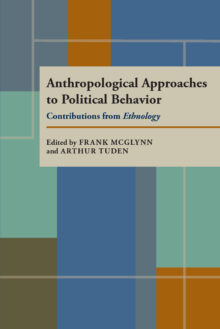
Frank McGlynn
Frank McGlynn is Professor of Anthropology at the University of Pittsburgh, Greensburg.
The Meaning Of Freedom
Economics, Politics, and Culture after Slavery
In this interdisciplinary study, scholars consider the aftermath of slavery, focusing on Caribbean societies and the southern United States. What was the nature and impact of slave emancipation? Did the change in legal status conceal underlying continuities in American plantation societies? Was there a common postemancipation pattern of economic development? How did emancipation affect the politics and culture of race and class? This comparative study addresses precisely these types of questions as it makes a significant contribution to a new a growing field.
Anthropological Approaches to Political Behavior
Contributions from Ethnology
Power is immanent in human affairs; by definition, human beings are political animals. The only way to fully comprehend and analyze the complexities of power is to locate where material, psychological, and social dimensions of political power are ultimately and socially situated and reproduced. This collection of essays highlights the theoretical concerns of political anthropology. Initially published in the journal Ethnology, the essays were classroom tested and collected on the basis of student comments. An in-depth introduction presents the intellectual traditions in political anthropology and focuses particularly on the manner in which various periods defined and dealt with the nature of social power. It also places current works within the framework of critical but constantly revised theoretical problems.Contributors: Mart Bax; Ernest Brandewie; Karen J. Brison; Philip A. Dennis; Richard G. Dillon; Harvey E. Goldberg; James Howe; Donald T. Hughes; Roger M. Keesing; Donald V. Kurtz; Charles Lindhom; Robert F. Maher; Richard W. Miller; Sydel F. Silverman; L. Lewis Wall; Daniela Weinberg


